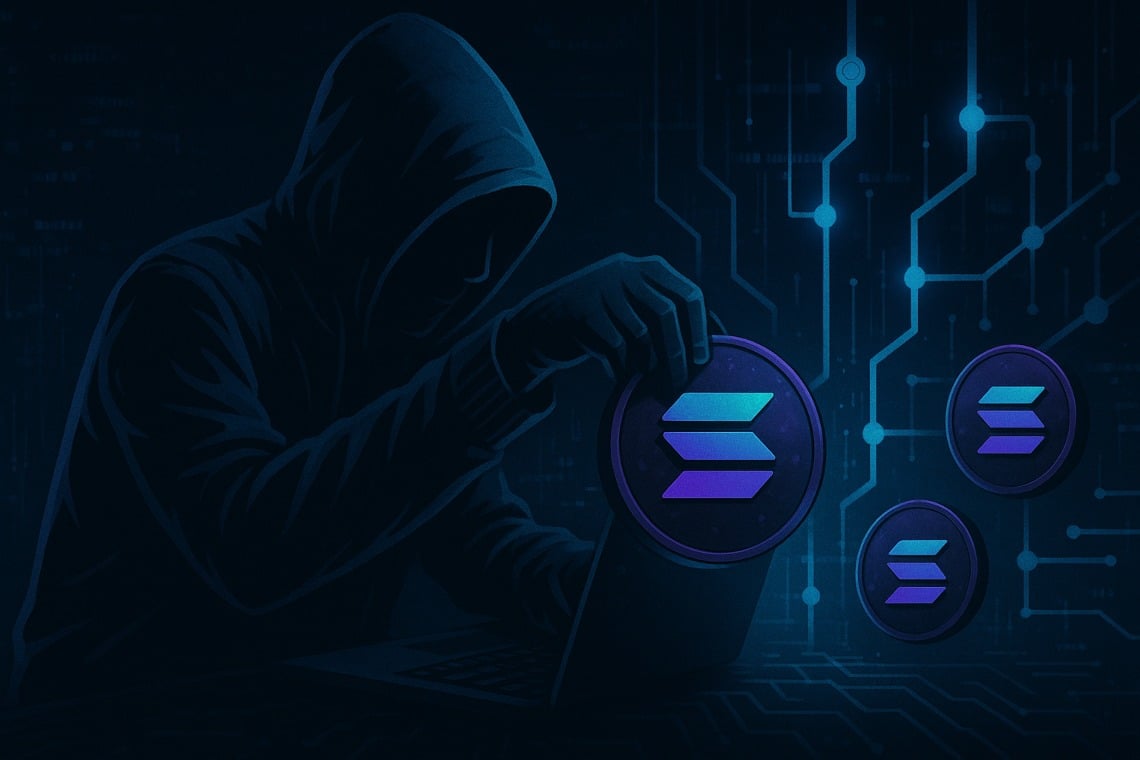The Fondazione Solana recently disclosed a critical vulnerability in its privacy-focused token system, a flaw that could have had devastating consequences for the ecosystem. The issue, identified in the ZK ElGamal Proof program, exclusively concerned the confidential transfers of Token-22 tokens and did not affect the standard SPL tokens nor the main logic of the Token-2022 program.
The heart of the bug on the Solana network: zero-knowledge proofs (ZKP)
The vulnerability was related to the implementation of ZKP (Zero-Knowledge Proofs), a sophisticated cryptographic method that allows proving the validity of a transaction without revealing sensitive data such as amounts or addresses. This system is essential for ensuring privacy in blockchain transactions, but it was precisely here that the bug was nested.
According to the Foundation, the problem arose due to the lack of some algebraic components in the hashing process during the Fiat-Shamir transformation, a key step to make the proofs non-interactive. In practice, this flaw allowed a skilled attacker to create false proofs that would still be accepted by the on-chain verifier.
Possible consequences: infinite tokens and illicit withdrawals
If exploited, this flaw could have allowed malicious actors to generate an unlimited number of tokens or withdraw funds from other accounts without authorization. A potentially catastrophic risk for the integrity of the network and user trust.
However, it is important to emphasize that the vulnerability was discovered in time and there is no evidence that it has ever been exploited. All funds, according to the Solana Foundation, remain safe.
The first warning sign came on April 16, when the Anza security team published a notice on GitHub, accompanied by a working proof-of-concept. The alert immediately mobilized the engineers from the Solana, Anza, Firedancer, and Jito development teams, who verified the bug and immediately began mitigation operations.
The following day, April 17, an initial patch was distributed to the validator operators, followed by a second patch released that same evening to resolve a related issue in another part of the code. Both fixes were reviewed by three independent security firms: Asymmetric Research, Neodyme, and OtterSec.
Rapid adoption and no impact on users
Thanks to the timely collaboration between the various teams and the transparency in managing the incident, by April 18 the majority of the validators had already implemented the patches, drastically reducing the risk of exploit.
The Solana Foundation, in a/an post-mortem published subsequently, confirmed that there were no attacks or loss of funds. The incident, however, highlighted the importance of constant monitoring and a solid security infrastructure, especially for advanced features like confidential transfers.
Token-22: innovation under examination
Token-22 represent one of the most ambitious innovations of the Solana ecosystem, offering advanced privacy features through the encryption of amounts and the use of ZKP. However, this very complexity has made it possible to introduce such a sophisticated vulnerability.
The bug did not affect the standard SPL tokens, which remain the most used format on the Solana network, nor did it compromise the main logic of the Token-2022 program. This suggests that the issue was confined to a specific extension of the system, reducing the potential impact.
A lesson for the entire blockchain sector
The episode represents a wake-up call for the entire cryptocurrency sector, where the adoption of increasingly advanced technologies also requires a proportional level of security. ZKPs, while offering significant advantages in terms of privacy, introduce new technical challenges that must be addressed with extreme care.
The quick and coordinated response of the Solana Foundation and its partners demonstrates how effective management of vulnerabilities can prevent significant damage and strengthen trust in the network.
Conclusion: enhanced security and maintained trust for the Solana ecosystem
Despite the potential severity of the discovered flaw, the Solana Foundation has demonstrated a high capacity for reaction and transparency, fundamental elements for maintaining the trust of the community.
Thanks to the collaboration between the development teams and external security companies, the vulnerability was neutralized before it could be exploited, and the integrity of the network remained intact.
This episode highlights the importance of a proactive approach to security, especially in a constantly evolving context like that of blockchain. Technology advances, but so do threats: only those who can face them with readiness and competence will be able to guarantee a solid and secure future for the entire ecosystem.
